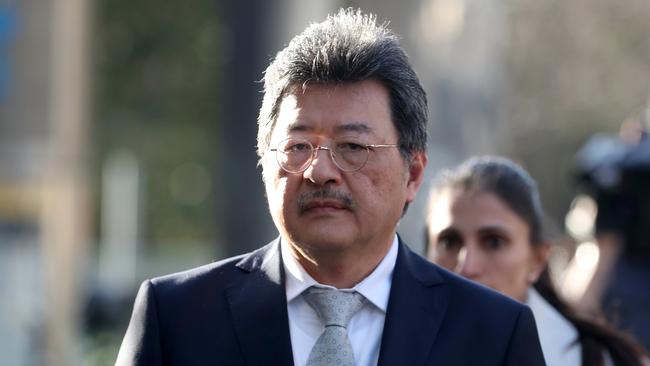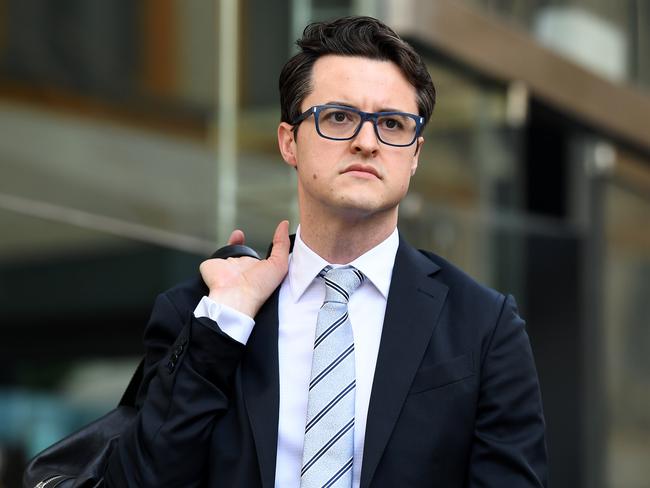Discount TPG mobile claims, ACCC urges court
ACCC challenges TPG’s case as judge weighs up the fate of its proposed merger with Vodafone.

The Australian Competition and Commission has urged the Federal Court to discount the claims made by TPG Telecom that it can no longer build a mobile network of its own, as Justice John Middleton weighs up the final fate of the $15 billion merger between TPG and Vodafone Australia.
In its closing statement to the court, the regulator’s legal counsel Michael Hodge urged Justice Middleton to look past the litany of reasons presented by TPG that prevents it from rolling out a network, without the help of merger partner Vodafone Australia, and instead focus on what the telco would need to do without the benefit of the merger.
“What your honour has to ask is how will TPG, and by that we mean Mr (David) Teoh (founder of TPG) proceed if there is no merger.
“There is a real chance that he will roll out a network.”
He also pointed out that it wasn’t the regulator’s burden to prove how TPG can go about building a viable network.
“Despite the claims of regulatory paternalism the ACCC is not in the business of building a mobile network,” Mr Hodge said.
“Is the ACCC specifying which vendor to use, which equipment to use, which poles to use?
“The ACCC is not doing that, we have not attempted to do that.”
The regulator’s legal counsel added that there was no conclusive evidence that TPG didn’t have any alternatives to Huawei’s 5G equipment, a factor that the telco says is crucial to its decision to halt it mobile network.
However, Mr Hodge said that 5G was never a major factor in TPG’s mobile road map.
“Based on the evidence we say is that TPG had no plan of when it would roll out a 5G network.”
The ACCC alleges that TPG has used the ban on Huawei’s 5G equipment as an excuse to bolster its case for the merger to be allowed.
According to the regulator, not only is 5G not a determinant on whether TPG should build a network, its insistence on using Huawei’s equipment was unfounded.
While TPG says it needs a very specific piece of equipment for its proposed small-cell mobile network, Mr Hodge said there is no reason to accept that the telco can’t overcome that hurdle by the time the court delivers its final verdict on the merger.
“It’s inherently improbable that Mr Teoh will still have a closed mind to what technical solutions are available to him at that time, “ Mr Hodge said.

What TPG will do if the merger is permanently nixed will be key consideration for Justice Middleton, who said on Monday that the final decision would have “considerable implications for the Australian telecoms industry at all levels”.
He also cited that the final decision on the case could be delivered as late as February 2020.
Meanwhile,TPG’s counsel Dr Ruth Higgins SC, fiercely contended that the ACCC’s case was built entirely on the possibility that TPG will build a competitive mobile network if the merger is rejected.
TPG has maintained throughout the three-week trial that it is no longer in a position to build a mobile network and Ms Higgins on Tuesday further reinforced the claim.
“It’s not likely that TPG will enter the mobile market over the next five years,” she said.
“There is no chance of this complex process to happen quickly, there’s no chance.”
On Monday, Ms Higgins pointed to the testimony of TPG boss David Teoh that he was not interested in building a mobile network and would seek to sell the 4G spectrum the telco has in its possession.
“TPG’s actual business model for its ceased mobile network has been made very public in these proceedings,” she said.
“It has been subjected literally to national scrutiny, the original business plan, TPG senior executives have come before your honour and disavowed the existence of any business case for a new rollout.
“As we said in opening, the ACCC’s case is essentially this: ‘You tried before, and enough things are the same now as then that you’re likely to try again’.
“That’s the case and we say this argument approaches questions of time and experience wrongly in several ways,” she said.
Vodafone Australia”s counsel Peter Brereton, QC, also reiterated that the ACCC’s opposition is based on a faulty premise, telling Justice Middleton that he needed to consider whether there’s a real chance of TPG building a mobile network by itself.
He added that the core issue in question is whether the merger would lead to a significant lessening if competition.
“In another universe one might recognise or accept that having four strong MNOs would be better for competition. That’s not what this case is about.
“It’s not for the court to seek to engineer a competition outcome.
“The question for the court is to assess whether this acquisition that my client wishes to undertake will likely have the effect of substantially lessening competition,” he said.



To join the conversation, please log in. Don't have an account? Register
Join the conversation, you are commenting as Logout